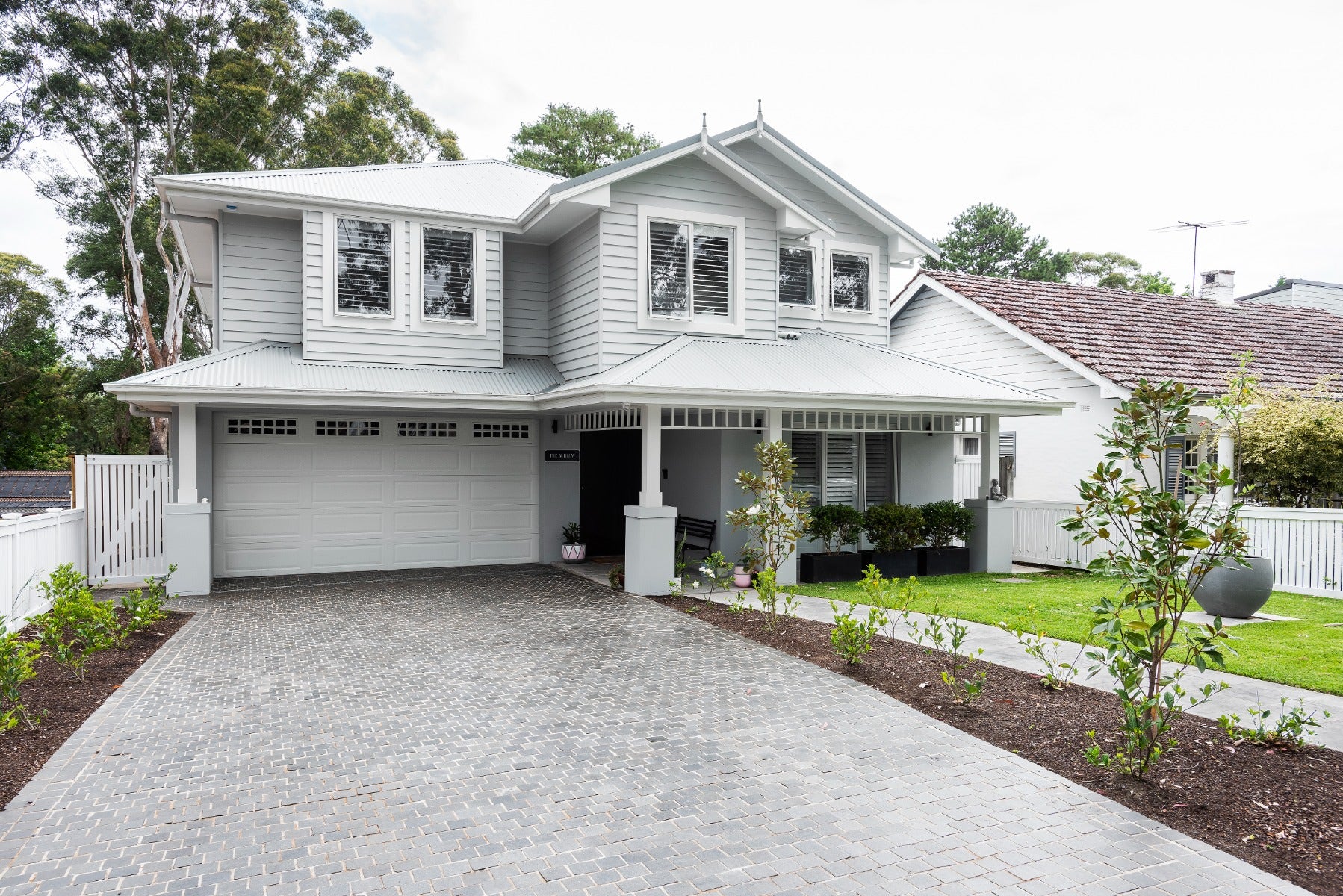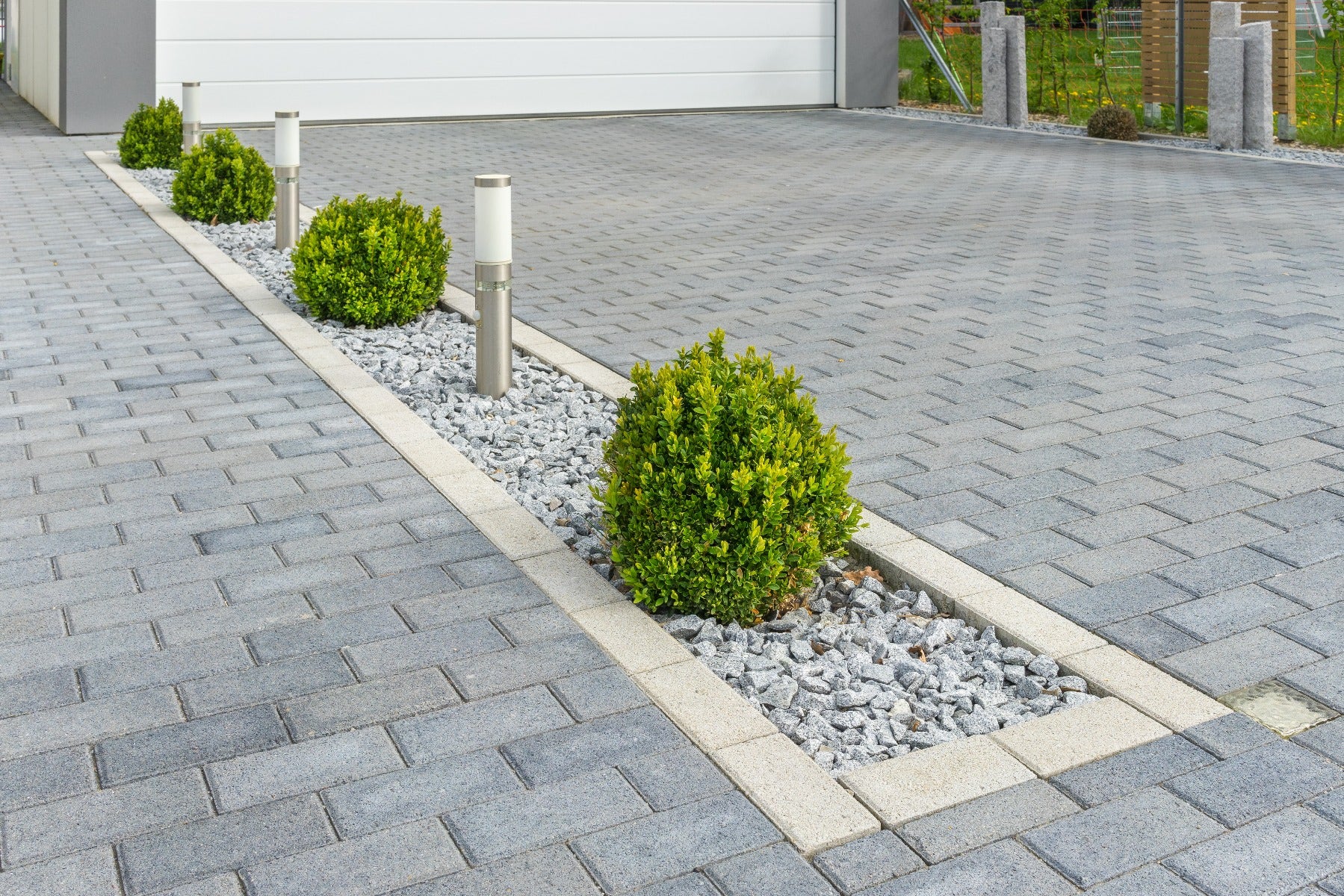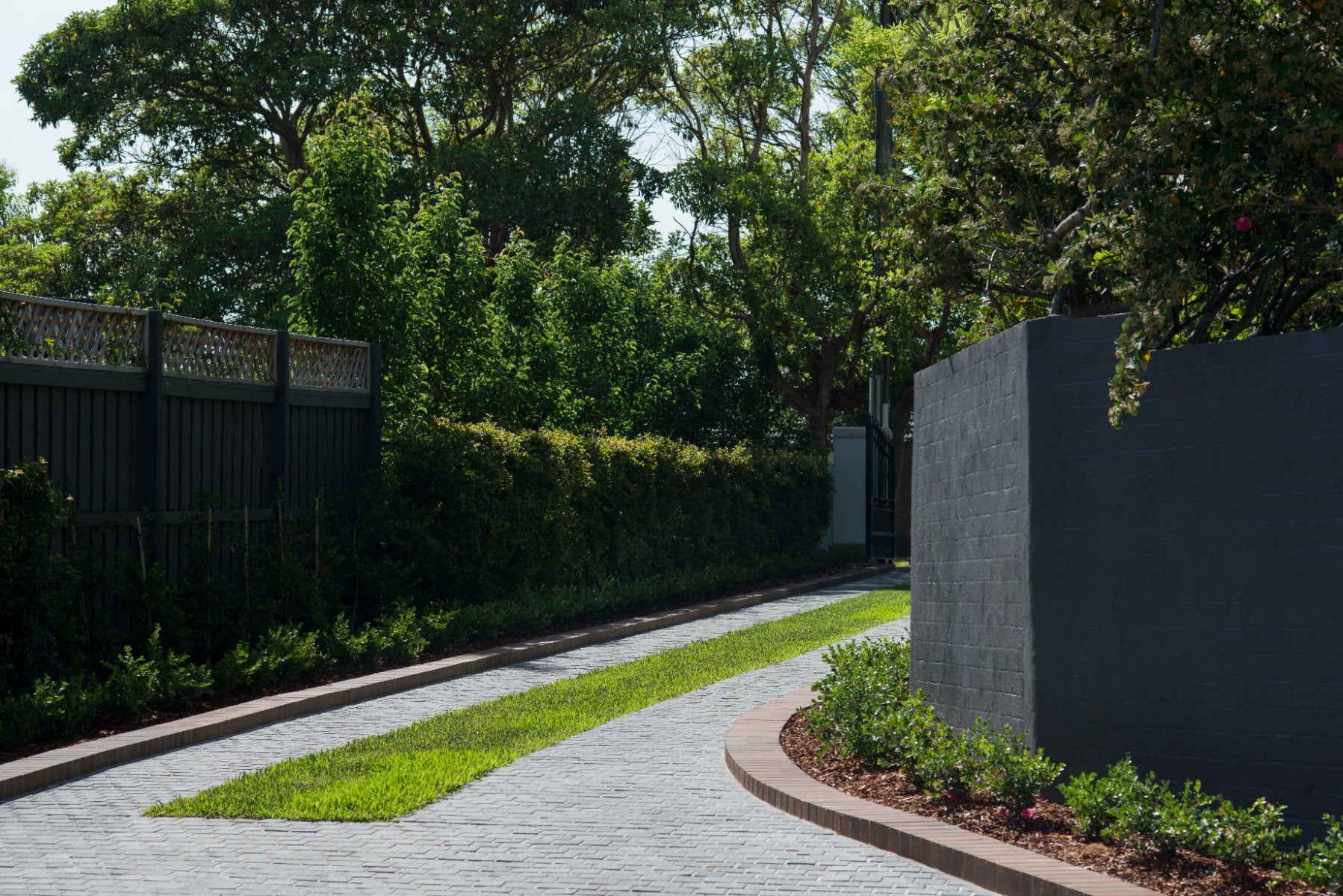Articles
What Are The Best Driveway Pavers? 3 Considerations To Make
09.10.22

The Best Pavers for Driveways - Material, Colour & Style
Your driveway is one of the first things people notice about your home, so you must make a good first impression. An untidy driveway not only looks bad, but it can also knock thousands off the value of your property.
Research from Clemson University shows that improving landscaping can increase the value of your home by 6-7%.
Several materials can be used to update your driveway including asphalt, concrete and gravel. But pavers are by far the best option. Driveway pavers come in a range of colours and styles that make it easy to create stylish designs. But with so many different types of paver available, choosing the right one can be difficult. So here we're going to look at the different types of pavers and the things you need to think about when making your choice.
TYPES OF DRIVEWAY PAVERS
Cobblestone pavers
Cobblestone pavers are one of the most desirable pavers because they evoke a traditional cottage style. Cobblestones are also easy to maintain, durable and suitable for paving unusual shapes.
Cobblestone pavers are made from tough natural materials such as granite, porphyry and bluestone. We also have a range of Quartz Tuscan yellow cobbles which are laid on a mesh membrane to provide an ultra-durable contemporary surface for your driveway.
The cost of installing cobblestone pavers is around $250–$390 per M2, including the cost of materials and labour.
Concrete pavers
Concrete is one of the most common styles of pavers for driveways. They offer most of the advantages of natural stone pavers but at a fraction of the cost. Concrete is also incredibly durable which makes it a practical alternative to brick and porcelain.
Concrete pavers are available in a range of colours, styles and finishes, which makes it easy to match them with your property. For example, check out our Charcoal Body Paver which is a lightweight concrete paver ideal for landscaping patio areas and garden paths.
The cost of installing concrete pavers is $100–$130 per M2, including the cost of materials and labour.
Brick pavers
Brick pavers can be made from clay or concrete. Clay is the traditional method where bricks are baked in an oven to create a tough block suitable for driveways and paths. But concrete bricks offer more strength and durability at a lower cost.
The latest construction techniques allow us to create concrete brick pavers that look just as good as clay. Check out our Havenbrick 50 Brushwood range for example. This looks like a traditional clay brick but has all the benefits of concrete.
The cost of installing a brick driveway is around $100–$130 per M2, including the cost of materials and labour.
Porcelain pavers
Porcelain pavers have become popular over the past few years due to their modern clean and minimalistic look. Porcelain pavers are incredibly strong and are resistant to water permeation. This makes them suitable for pool and deck areas along with driveways.
Porcelain pavers are available in a range of colours and styles. Our Stockton Coal paver for example is available in dark anthracite and cut in rectangular 400x800 tiles. This is ideal for creating an ultra-sophisticated drive to complement modernist style architecture.
The cost of installing porcelain pavers is around $180-$250 per M2, including the cost of materials and labour.
Natural stone pavers
Natural stone has a beautiful patina that no other material can replicate. This makes natural stone ideal for use in both interior and exterior spaces. So natural stone pavers are ideal for creating outside/inside patio areas.
Check out our Travertine Grey Lappato tile for example. This is part of a contemporary glazed natural stone collection that is suitable for bathroom, pool and patio areas.
The cost of installing natural stone pavers is around $120–$200 per M2, including the cost of materials and labour.
THINGS TO CONSIDER WHEN PICKING DRIVEWAY PAVERS
Size & shape, steepness
The size, shape and steepness of your driveway are some of the most important considerations when choosing a paving material. Choosing the wrong material for your site may result in the driveway being structurally compromised.
Steepness is the first consideration. Steep driveways require extra support for the pavers to prevent them from slipping. Installing the pavers in an interlocking herringbone pattern is the best way to prevent this.
The shape of your driveway will also impact your choice of paver. An unusually shaped site will require pavers to be cut to size. This is difficult using natural brick pavers. Concrete and stone are the best materials for creating unusual shapes.
Finally, the size of your driveway should also be considered. The larger the area to be covered the more it will cost. This could rule out using expensive natural stone or porcelain products.
Usage, wear & tear
You should also think about usage when considering paving materials. Some materials are more durable than others. Choosing the wrong type of material will result in your driveway wearing excessively due to heavy traffic or oversized vehicles.
Concrete is the most durable material and is capable of handling lots of traffic. This is also the most weather resistant so it is suitable for almost all locations. But care needs to be taken to ensure the surface is prepared properly before laying concrete pavers.
Brick is the least durable material. Clay bricks are porous which allows water to get in. So natural bricks should always be sealed once installed. And bricks can be easily damaged by heavy vehicles. So natural brick is only suitable for light traffic areas.
Water drainage
Drainage should also be carefully considered. Water is one of the biggest causes of damage to driveways. So you need to ensure that the driveway is designed so that excess water can drain away before it damages the underlying structure.
For steep sites, a storm drain may be necessary to ensure water is removed effectively. But you should also consider the paving material. Brick for example is porous and absorbs water which makes it unsuitable for sites prone to waterlogging.
Other materials such as porcelain are good at repelling water. These are a good choice for swimming pools and patios. But porcelain is not the best choice for steep sloping sites. Concrete offers the best of both worlds, but it should be sealed once installed.
HOW YOUR DRIVEWAY IMPACTS THE LOOK & FUNCTIONALITY OF YOUR HOME
Your driveway should be practical but it should also complement the look of your home. So when selecting driveway pavers start by thinking about the architectural style of your home and the type of look you want to create.
Traditional home:
This style of home suits a rustic look using natural materials and finishes. Go for natural stone and brick if you can afford it. But rusticated concrete also works well. Choose a colour that contrasts with the walls. But try to avoid smooth finishes and unnatural looking colours.

Contemporary home:
This style of home suits both contemporary and rusticated finishes. Smooth finish porcelain pavers look great. Alternatively use natural stone pavers with a textured finish. You can also get away with less natural-looking colours such as black.
SUMMARY
Today’s homeowners have more choices than ever before when selecting a suitable material for their driveway. But all those choices can make it difficult to know which material is best.
That’s why we developed the following three-step process to help you choose the best pavers for driveway, patio and pool areas:
Start by establishing your budget. This will narrow down your paver material options. Work out how much you can afford per M2. For example, a price around the $100 per M2 mark will reduce your options to brick and concrete.
Then work out vehicle weights and expected traffic usage. Will you be parking an RV on the driveway? Or will it only be used occasionally by a couple of small cars? The answers to these questions will help you to establish the durability of the material required.
Finally, you should think about site topography and shape. We recommend herringbone patterns for steep sites due to their increased strength and durability. While brick, porcelain and concrete pavers are better suited to unusually shaped sites.
Check out our gallery for more inspiration. We also provide a FREE design consultation service. Complete the form here to book an appointment with our knowledgeable landscape design experts.


